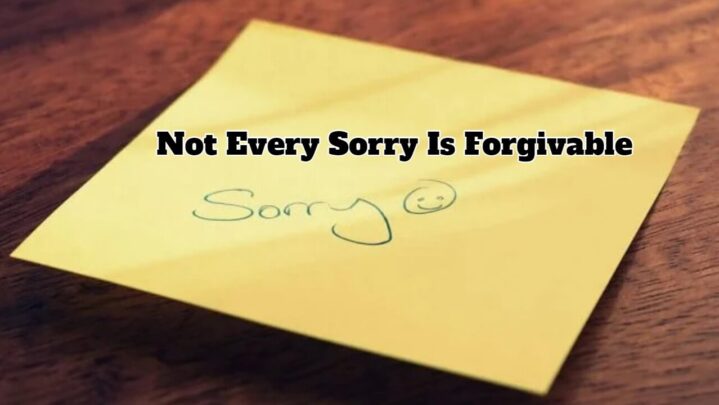Expressing “sorry” is frequently viewed as a means to convey regret and beg forgiveness. However, not every apology is forgivable. Saying sorry without sincerely meaning it or doing something to right the injustice might feel hollow and dishonest.
Sometimes the harm done is too big to be forgiven with an apology. For example, if someone has caused considerable bodily or emotional harm to another person, apologizing may not be enough to restore the damage. The victim may require time to heal and may never be able to fully trust or forgive the person who emotionally hurt them.
Apologies not accompanied by accountability and an effort to make amends may not be forgiven. Simply apologizing without doing anything to repair the damage or change the behaviour may be perceived as disingenuous and untrustworthy. A genuine apology should be supported by concrete steps to heal the harm and prevent it from happening again.
Furthermore, if someone consistently engages in harmful behaviour and subsequently apologizes without taking steps to rectify their activities, their apologies may become worthless. It’s vital to remember that actions speak louder than words, and a shift in behaviour demonstrates genuine remorse.
Some apologies might be damaging. For example, if someone apologizes but immediately shifts blame onto the victim or makes excuses for their behaviour, their apology may become a fraud, further damaging the relationship.
While apologies can be valuable in healing relationships, not every apology is forgivable. Before deciding whether or not to forgive someone, evaluate the gravity of the harm done, the sincerity of the apology, and whether or not the person has taken steps to correct their behaviour.





